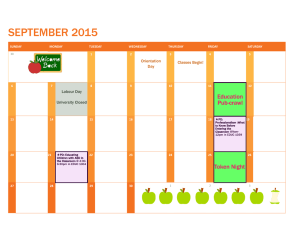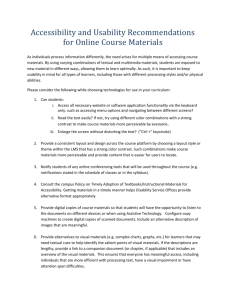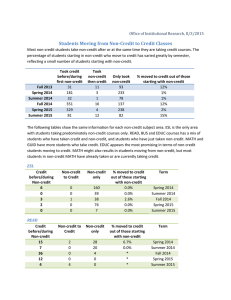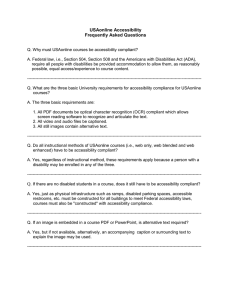Audiovisual accessibility: the role of public universities in the challenge of inclusion
advertisement
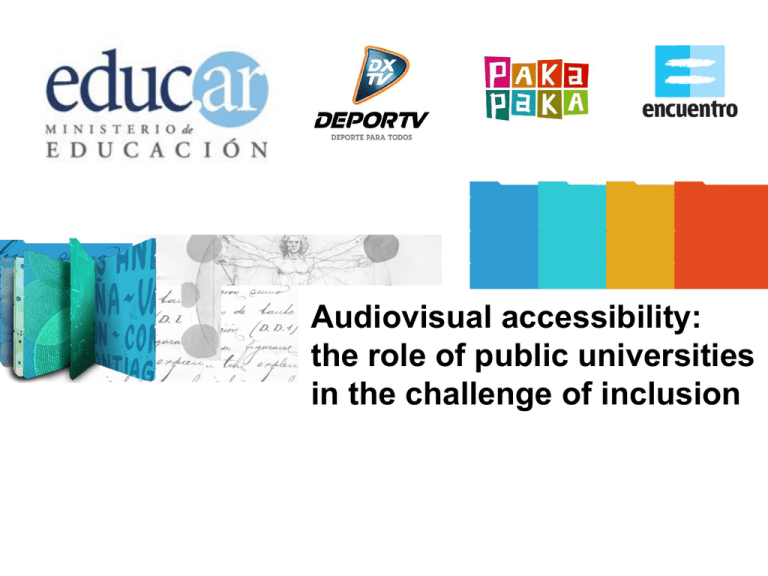
Audiovisual accessibility: the role of public universities in the challenge of inclusion A short presentation: Educ.ar TV channels • Encuentro is the Argentine national Ministry of Education channel. It develops high technical and aesthetical quality contents through productions, specials, fillers, co-productions and acquisitions. Its challenges are to make public television both educational and entertaining and ensure that all Argentines see themselves represented on screen. • Pakapaka is the national Ministry of Education channel addressed to Argentine and Latin American girls and boys, created as a space for them to learn, discover, participate and express themselves. • Deportv is an Argentine public channel which counts with live football, car racing, basketball, artistic gymnastics and swimming transmissions. Specific regulation for Accessibility Worldwide: Convention on the right of persons with disabilities In Argentina: Law 26,522 on Audiovisual Communication Services establishes guidelines for the operation of broadcast media in the Republic Argentina. This legislation was enacted on October 10, 2009. It includes: • "ARTICLE 66. - Accessibility. Broadcast emissions, especially informative, educational, cultural and general interest programs of national production, should incorporate additional media such as closed captioning , sign language and audio description, for the correct reception by persons with disabilities, seniors and other people who may have difficulty accessing content". Dates/ Highlights 2000: first closed caption experiences in Argentina - TV Pública (Public television) 2009: enactment of new TV and audiovisual content law 2010: first closed caption and audiodescription submissions in Educ.ar (for Encuentro Channel) 2012: start-up of Accessibility area in Educ.ar 2012: Creation of "accesible TV decoder“ for 100.000 argentinian with disabilities 2019: Analogue switchoff in Argentina Situation map/ State of affairs • Slow execution of the objectives of the law • Few specialized companies offering not good as possible services • Thick and general solutions for accessibility: only live closed caption, audiodescription and sign language are being produced • Lack of national norms (specific know-how) • Emission solutions for TDA (Argentine Digital Television) found for Buenos Aires, not for the entire country A possible solution: to work with public universities Context: • Film & Arts degrees in upgrowth and evolution • "Polos & Nodos" national plan 6 universities are already working in the production of accessibility services for Educ.ar and we're extending the call Our objectives • To create learning/knowledge and stimulate creation of what we call "jobs of the future" (subtitlers, audiodescriptors, TV sign interpreters) • To offer quality services • To raise awareness about the meaning of “Communication for everyone”/ Inclusion in audiovisual content • To reinvert state resources in the state What we’ve done • Over 400 hours of online captioning in our website Conectate (www.conectate.gov.ar) • 2012: First experience in captioning Olympic Games for TDA (Digital Television in Argentina) • International agreements for sharing content and accesibility services • National agreements with universities: 2 universities are learning how to create audiodescription, 2 universities are working how to work in closed caption and 2 are already producing programmes with sign language Natalia Laube Accessibility Educ.ar nlaube@educ.gov.ar Thank you!

